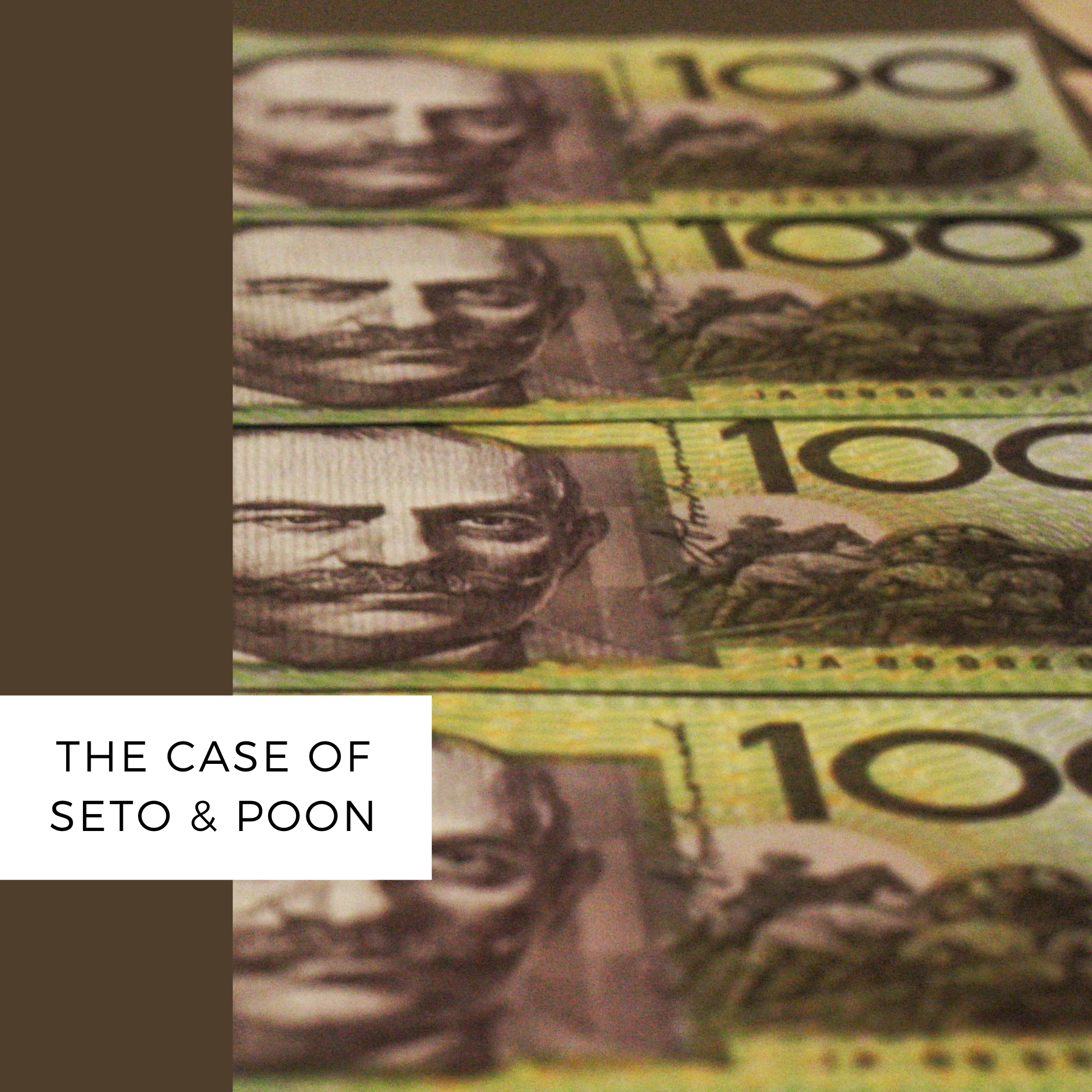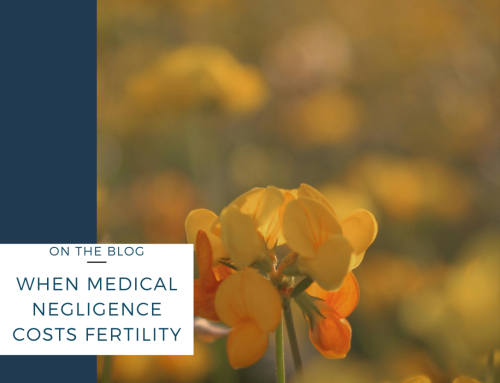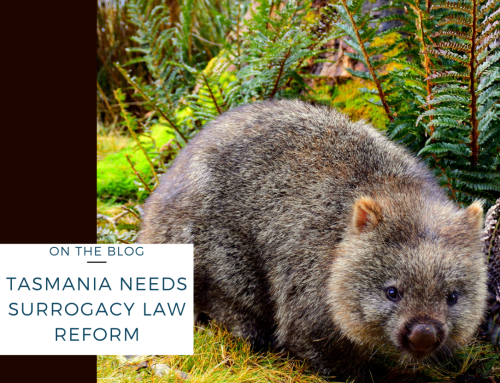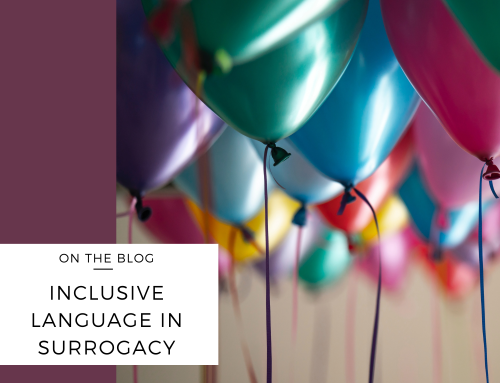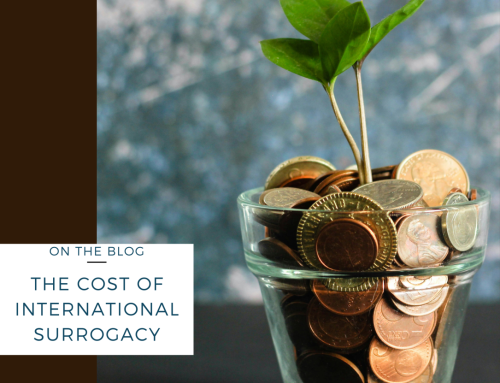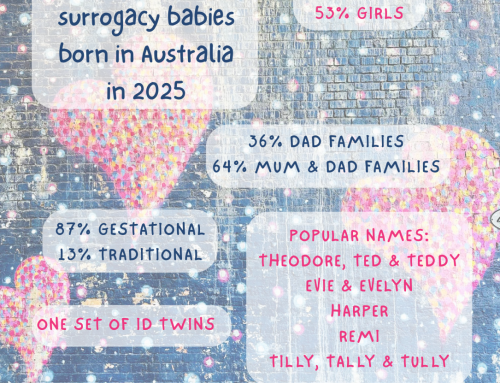What happens when you engage in commercial surrogacy within Australia?
A case in Sydney, referred to as Seto & Poon and heard in in the Family Court of Australia, involved the birth parents and the intended parents entering what seems to amount to a commercial surrogacy arrangement. The case involved money and promises, blackmail, deception and threats and resulted in final parenting orders being made for the intended parents. All four parties, and the birth parents’ lawyer, have been referred by the court to the police, for possible breach of the Surrogacy Act for engaging in commercial surrogacy in Australia. The lawyer was also referred to the NSW Legal Services Commissioner.
A 2025 case of Queensland intended parents engaging in commercial surrogacy overseas, that of Lloyd & Compton, was referred to authorities for investigation. If you are engaging in international surrogacy you should obtain legal advice before proceeding.
If you are new to surrogacy, you can read about how to find a surrogate, or how to become a surrogate yourself. You can also download the free Surrogacy Handbook which explains the processes and options.
The parties in Seto and Poon included the birth parents, Ms Poon and her partner Mr Zhu, and the intended parents Ms Yue and her husband Mr Seto. These names are pseudonyms used by the court for reporting purposes. Ms Yue and Mr Seto wanted children, and underwent IVF treatment without success. Ms Poon offered to be their surrogate, in exchange for Ms Yue and Mr Seto assisting her to obtain Australian residence.
While the arrangement was for Ms Poon to be a traditional surrogate for Ms Yue and Mr Seto, the parties did not engage in any pre-conception counselling or obtain legal advice prior to entering the arrangement. Counselling and legal advice, and a written agreement, are required under the Surrogacy Act in New South Wales and for the parties to obtain a parentage order. So, while it is reported as ‘surrogacy’ and the parties thought it was surrogacy, it did not meet any of the legal requirements for a surrogacy arrangement. The intended parents would not be eligible to apply for a Parentage Order under the Surrogacy Act.
Some facts of the case:
- Ms Poon and Mr Seto attempted to conceive via natural and artificial conception attempts over several months. Eventually they presented at an IVF clinic as a couple seeking assisting to conceive. Ms Yue attended the appointment as a support person at those appointments. The staff at the IVF clinic were none the wiser that Ms Poon and Mr Seto were not a couple or that there was a surrogacy arrangement between the parties. Through the IVF treatment, Ms Poon conceived twins.
. - After the conception, the parties entered into written agreement which provided for Ms Poon to relinquish the twins to the intended parents in exchange for several payments amounting to well over $50,000. To be clear, commercial surrogacy is illegal in Australia. The birth parents later demanded more money – $50,000 per twin. Threats were made that unless payments were made, the birth parents would find someone else to pay for the babies.
. - After the birth, however, the parties continued to argue and the birth parents continued to demand more money. The twins left hospital with the birth parents and remained with them for several months.
. - Shortly after the birth, the birth parents’ lawyer, referred to as ‘Ms D,’ wrote a lengthy letter to the intended parents, demanding payment of over $300,000 for:
- ‘nutritional expenses’ of $100,000.
- cosmetic and medical expenses of between $40,000 and $50,000.
- legal expenses of $50,000.
- the cost of a ‘maternity matron’ at $24,000.
- lost earnings up to $150,000.
The intended parents issued proceedings in the Family Court, seeking that the children live with them and they be granted parental responsibility for them. The respondent birth parents engaged in the court proceedings initially, but eventually withdrew and were not present during the final hearing.
There was no question that the biological parents of the children were Ms Poon (the birth mother) and Mr Seto (the intended father). The court had to consider whether Ms Poon’s partner, Mr Zhu, was a legal parent of the children, by reason of the Family Law Act. Section 60H of the Act provides that where a woman conceives a child via an artificial conception procedure, she and her partner, if she has one, are considered to be the legal parents of that child, regardless of genetics. This presumption can be rebutted if it can be shown that the partner did not consent to the artificial conception procedure.
The Court also considered the NSW Status of Children Act, which provides that when a woman conceives a child through a fertilisation procedure, her husband is the parent of that child if he consented to the procedure – and regardless of any genetic connection between him and the child. The court had to consider the High Court case of Masson and Parsons, which determined the parentage of a child conceived through a co-parenting arrangement.
The court in Seto and Poon determined not to apply Section 60H, and considered that Mr Zhu, the birth mother’s partner, was not the ‘intended parent’ of the children conceived in the arrangement. The court also considered that if he did consent to the artificial treatment procedure, it was only for the financial gain he expected to receive in exchange for his partner carrying and relinquishing the children.
The court found that the parents of the children are Ms Poon (the birth mother) and Mr Seto (the biological father). The decision to declare Mr Seto as a parent of the children was based on several factors, including genetics, intentions, and actions – such as his commitment to care for them and spend time with them.
The final decision about the children’s care, welfare and who should have parental responsibility for them, was based on the children’s best interests. Nothing in the commercial surrogacy agreement was binding on the court in making that decision. While this arrangement was unique, it is a good reminder that a surrogacy agreement is not enforceable, and any decision about children is based on their best interests.
The conduct of the lawyer, Ms D, was scrutinised by the Judge, and a referral made for her to be investigated by the NSW Legal Services Commissioner as to whether she is a fit and proper person to continue holding a practising certificate.
In short, by not following the requirements under the NSW Surrogacy Act and engaging in commercial surrogacy in exchange for the pregnancy and babies:
- the intended parents cannot obtain a Parentage Order in the Supreme Court of New South Wales.
- the parents listed on the children’s birth certificates are Ms Poon and the Mr Seto.
- the decision about who the children should live with and spend time with was determined in reference to the children’s best interests, not on the contents of the surrogacy agreement.
- the intended parents share parental responsibility for the children and can do the usual things like register for Medicare and Centrelink, and obtain passports for the children.
- the children shall live with the intended parents and spend no time with the birth parents.
- all four parties, and the birth parents’ lawyer, have been referred to NSW police for investigation and possible criminal proceedings for engaging in commercial surrogacy, which is illegal across Australia.
My hot tip for getting surrogacy right? Do the pre-conception legals and counselling. Get advice from a surrogacy lawyer who knows what they’re talking about. Don’t play games with the lives and futures of children. And don’t think that breaking the law leads to any good things. And definitely don’t enter a commercial surrogacy arrangement in Australia!
What else happens when surrogacy goes wrong? You can read more about other surrogacy arrangements and how to avoid the worst-case scenarios.
Sarah has published a book, More Than Just a Baby: A Guide to Surrogacy for Intended Parents and Surrogates, the only guide to surrogacy in Australia.
You can find more information about surrogacy in Australia in the Blog and by listening to more episodes of the Surrogacy Podcast.
Sarah is the only lawyer in Australia practising exclusively in surrogacy and donor conception law. Sarah has been a surrogacy lawyer for many surrogacy arrangements in Sydney, Wollongong, Newcastle, Port Macquarie and across New South Wales.
Sarah can assist with surrogacy arrangements across all States, including New South Wales and cross-border arrangements. You can contact me here. All consults are conducted over Zoom and email. You can book in for a consult with me below, and check out the legal services I provide.

